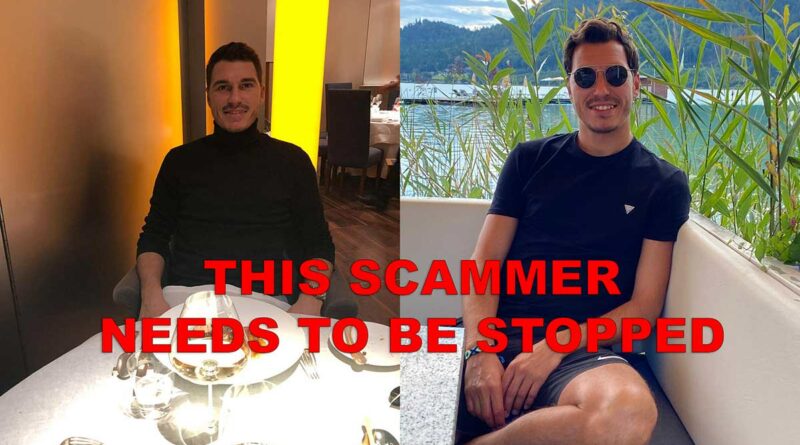This Scammer Needs to Be Stopped: The Roberto Divkovic Case
In a world where trust is the currency of the realm, the actions of one individual can cast a long shadow over the integrity of financial markets. The case of Roberto Divkovic, the CEO behind IMP 1991 Plus DOO Beograd, is a stark reminder of the devastating impact financial fraud can have on investors and the broader economic landscape. Divkovic’s alleged orchestration of a gold trading scam has defrauded investors of hundreds of thousands of Euros, prompting a serious reevaluation of regulatory oversight and the mechanisms in place to protect the unsuspecting.
Divkovic, a 32-year-old Austrian national, has been accused of leveraging the reputation of IMP 1991 Plus DOO Beograd to entice investors into a scheme promising lucrative returns on gold trading. However, these promises have proven to be illusory, with many investors left facing significant financial losses. The operation, described by victims and investigators alike as a sophisticated fraud, highlights a troubling vulnerability in the financial system’s ability to safeguard against such deceit.
The fallout from this scandal is not limited to the financial ruin of numerous investors. It has also ignited a broader conversation about the effectiveness of current regulatory frameworks in preemptively identifying and mitigating the risk of financial fraud. Questions are being raised about the due diligence processes of financial institutions and the regulatory bodies tasked with overseeing them. How could a scheme of this magnitude go unnoticed for so long?
Legal action is now underway, with authorities moving to hold Divkovic accountable for his actions. Yet, as the legal process unfolds, the victims of this scam are left to grapple with the consequences of their misplaced trust. The case serves as a cautionary tale, underscoring the importance of rigorous scrutiny when investing, especially in ventures that promise unusually high returns.
This scandal also serves as a call to action for regulatory bodies. There is a clear need for stronger oversight and more stringent verification processes to prevent similar frauds from occurring. The Divkovic case should act as a catalyst for reform, driving the development of more robust protections for investors and restoring faith in the financial markets.
As we continue to uncover the full extent of this fraud, the story of Roberto Divkovic is a reminder of the ongoing battle against financial crime. It highlights the need for vigilance, both from investors and the institutions designed to protect them. In a world ever more reliant on trust, ensuring the integrity of our financial systems has never been more important.
The Divkovic scandal is not just a tale of financial loss; it is a wake-up call to strengthen the safeguards that protect our financial future. As investigations proceed, one thing is clear: this scammer needs to be stopped, and measures must be taken to ensure that such a scheme never finds fertile ground again.




